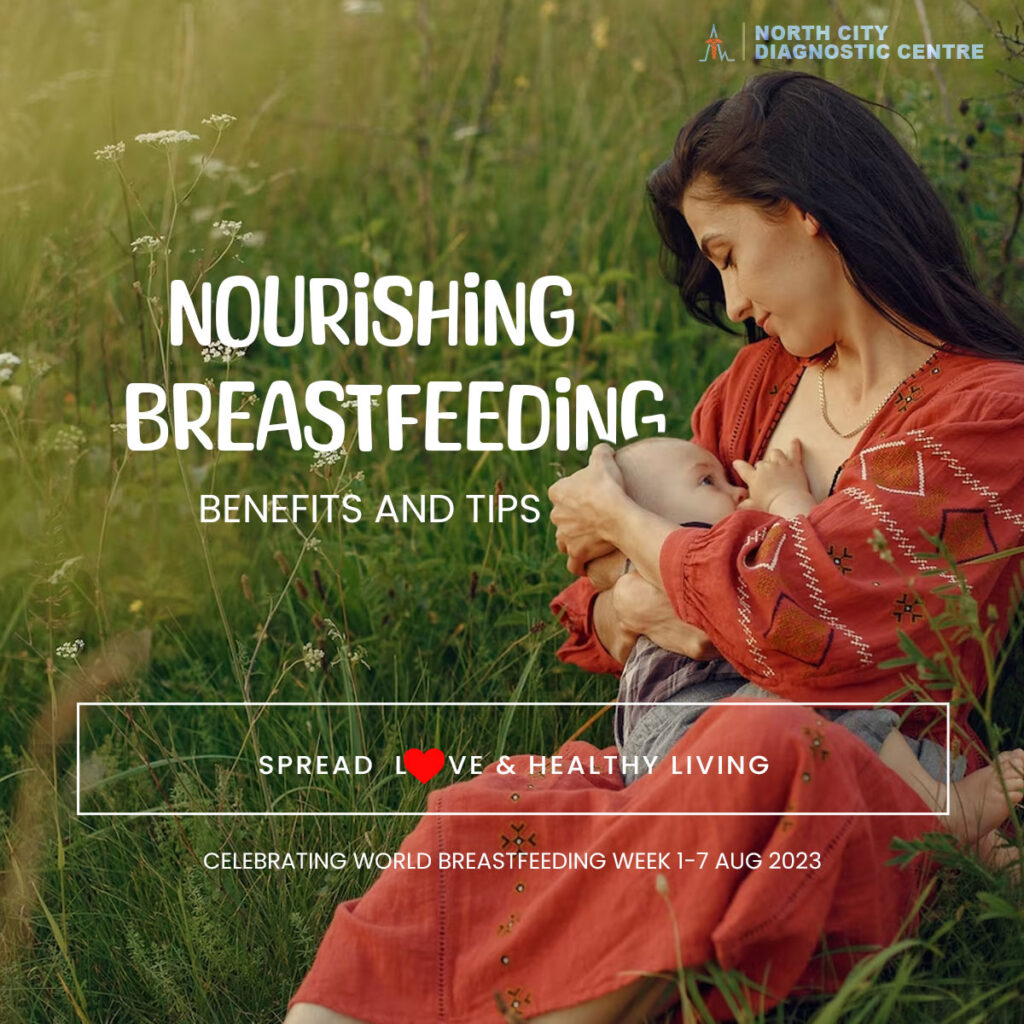
Menu
Nourishing Breastfeeding is a journey of development and wellbeing that helps a mother and the baby build an intimate connection. It has benefits both for the both the child and the mother. Let us explore the wonders of breastfeeding.
Ain’t your mind curious to know how breastfeeding have lasting benefits?
We have also got you 10 breastfeeding tips, and how breastfeeding improves your chances of not having breast cancer.
Breastfed children perform better on intelligence tests, are less likely to be overweight or obese and less prone to diabetes later in life. Women who breastfeed also have a reduced risk of breast and ovarian cancers.
– WHO

Undoubtedly, breast milk is liquid gold, it is priceless for the baby. A complete full-stack pack of necessary nutrients, antibodies, and enzymes that are vital for the survival and development of the new-born during the early phase of life. Breast milk helps the baby develop a healthy immune system that will help live strong and healthy during later stages of life.
Avail specialized health check-up and screening. North City Diagnostic Centre offers state-of-the-art health check-up and screening packages at affordable prices. Call 
Breastfeeding offers a myriad of benefits for the baby’s overall health and well-being. Some of the key advantages include:
Breast milk is uniquely tailored to meet a baby’s nutritional requirements, promoting healthy growth and development. It contains antibodies that help the baby fight off infections and diseases, reducing the risk of illness.
The antibodies present in breast milk boost the baby’s immune system, providing a shield against various infections, respiratory illnesses, and gastrointestinal problems.
Studies have shown that breastfed babies tend to have better cognitive development due to the presence of essential fatty acids like DHA (docosahexaenoic acid) in breast milk.
Breastfeeding can reduce the risk of allergies and asthma in babies, as it exposes them to various flavors through the mother’s diet, making them more accepting of different foods later in life.
Breast milk is gentle on a baby’s delicate digestive system, reducing the chances of constipation and diarrhea.
Breastfeeding not only benefits the baby but also has numerous advantages for the mother’s health and well-being:
Breastfeeding fosters an emotional bond between the mother and her child, creating a strong sense of closeness and attachment.
The hormones released during breastfeeding help the uterus contract, aiding in the mother’s postpartum recovery process.
Breastfeeding burns extra calories, facilitating healthy weight loss for the mother after childbirth.
Research suggests that breastfeeding may lower the mother’s risk of developing breast cancer, ovarian cancer, and type 2 diabetes.
Breastfeeding is convenient and cost-effective, eliminating the need for preparing formula and sterilizing bottles.
Initiate breastfeeding as soon as possible after childbirth to establish a strong breastfeeding bond.
Ensure the baby latches onto the breast correctly to avoid discomfort and ensure effective milk transfer.
Breastfeeding is convenient and cost-effective, eliminating the need for preparing formula and sterilizing bottles.
Find a comfortable breastfeeding position that works best for both the mother and the baby.
Breastfeeding is convenient and cost-effective, eliminating the need for preparing formula and sterilizing bottles.
You know your baby is feeding well if, by day 6, you have 6 or more wet diapers in 24 hours and the baby is pooping often. Weight gain is another aspect to keep checking. Many new-borns lose weight in their first few days and then regain it by the time they are two weeks old. When your baby is breastfeeding well and often, there is no need to give any other food or liquids – not even water.
Night-time feeds are essential for maintaining milk supply and comforting the baby.
Avoid introducing pacifiers or bottles in the initial weeks to prevent nipple confusion.
Breastfeeding may require practice and patience, but with time, it becomes a natural and rewarding experience.
Every mother-baby duo is unique, so trust your instincts and make choices that feel right for you and your baby.
The risk of breast cancer is reduced by 4.3% for every 12 months of breastfeeding, this is in addition to the 7.0% decrease in risk observed for each birth. Breastfeeding reduces the risk of Triple‐Negative Breast Cancer (20%) and in carriers of BRCA1 mutations (22–55%)
Breastfeeding has been a subject of research for its potential impact on reducing the risk of breast cancer.
A woman’s body undergoes considerable hormonal changes during pregnancy. Oestrogen and progesterone levels rise, to support the growth and development of mammary glands in preparation for breastfeeding.
During lactation, most women who breastfeed undergo hormonal changes that cause their menstrual cycles to be delayed. This reduces a woman’s lifetime exposure to breast cancer causing hormones such as oestrogen.
The duration of breastfeeding seems to play a crucial role in reaping the protective benefits against breast cancer. Studies have suggested that the longer a woman breastfeeds, the more pronounced the risk reduction becomes.
Breastfeeding encourages cellular differentiation within the breast tissue. Differentiation is the process where cells mature into specialized cell types with specific functions. Highly differentiated cells are less likely to undergo abnormal growth and mutation, reducing the risk of cancer development. Additionally, breastfeeding stimulates apoptosis, which is the natural process of programmed cell death. This helps eliminate damaged or potentially cancerous cells from the breast tissue.
Breastfeeding not only reduces your chances for developing cancer, but also your child’s. Studies have shown that it can help prevent your child from being overweight or obese later in life. Being obese puts a person at risk for many cancers. This includes pancreatic, postmenopausal breast, endometrial, esophageal, rectal and kidney cancers.
Breastfeeding is a magical and nourishing experience that forms an unbreakable bond between mother and child. The benefits of breastfeeding extend beyond the physical to encompass emotional well-being and lifelong connection. By prioritizing breastfeeding and supporting mothers in their breastfeeding journey, we can create a healthier and happier world for both infants and mothers.
So, let us celebrate the beauty of breastfeeding, cherish the nurturing bond it creates, and embrace the journey with love and dedication.
#NourishingBond #BabyLove #BreastCancerAwareness #BreastFeedingBenefits #BreastfeedingTips #MomLife #MotherhoodMagic #MomSupport #Parenting101 #MomLifeBalance #LifeChanging #JoinUsNow #BeExtraordinary #ViralContent #FollowUs #IncredibleJourney #MommyAndBabyTime #BreastfeedingAwareness #NourishWithLove #ViralMotherhood #Breastfeeding101 #MotherandChild #NourishingMotherhood #BreastfeedingBenefits #BabyLove #NDC #NorthCityDiagnosticCentre #Breastfeeding
35-A ,Canal West Road
Near Gouri Bari Bus Stop
Kolkata – 700004.
Local: +91 33 6605 0888